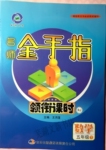
| |||||||||||||||||||||||||||||||||||||||||||||||||||||||||||||||||||||||||||||||||||||||||||||||||||||||||||||||||||||||||||||||||||||||||||||||||||||||||||||||||||||||||||||||||||||||||||||||||||||||||||||||||||||
 名师金手指领衔课时系列答案
名师金手指领衔课时系列答案科目:初中英语 来源:2009年福建省福州市高级中等学校招生考试英语试卷 题型:054
| |||||||||||||||||||||||||||||||||||||||||||||||||||||||||||||||||||||||||||||||||||||||||||||||||||||||||||||||||||||||||||||||||||||||||||||||
查看答案和解析>>
科目:初中英语 来源:同步题 题型:填空题
查看答案和解析>>
科目:初中英语 来源:同步题 题型:完形填空
| 完形填空 | ||||
| There are many different ways of seeing a town for the first time. One of them is to walk around it, guide-book in hand. Of course, we may 1 with our guide-books the history and special developments of a town and get to know them. 2 then, if we take our time and 3 in a town for a while, we may get to know it better. When we 4 it as a whole, we begin to have some 5 , which even the best guide-books do not answer. Why is the town just 6 this, this shape, this plan, this size? Why do its streets 7 in this particular way, and not in any 8 way? Here even the best guide-book fails us. One can’t find in it the information about how a town has developed to the 9 appearance. It may not describe the original (最初的) design of a town. However, one may get some idea of what it 10 look like by walking around the town. One can also imagine 11 the town was first planned and built. Then one can learn more about in what direction the town 12 to develop. What is the point of studying towns in this way? For me, it is simply that one gets a greater depth of pleasure by visiting and seeing a town with one’s own eyes. A 13 visit to a town may help one better understand why it is attractive 14 just reading about it in a guide-book. | ||||
|
查看答案和解析>>
科目:初中英语 来源:竞赛题 题型:完形填空
| 完形填空。 | ||||
| New Year's Day is the first day of the year. In modern times, it is 1 1st. It is a time for looking forward and wishing for a 2 year ahead. People welcome in the New Year on the 3 before. This is called New Year's Eve. All over Britain there are parties, fireworks (烟火), singing and dancing, to ring (鸣钟) out the Old Year and ring 4 the New Year. In the 5 days, the New Year 6 with a special custom (习俗) called "first footing". It was supposed to 7 good luck to people for the coming year. When January 1st started, people usually waited behind their doors 8 a person with dark hair to 9 . The 10 carried a piece of coal (煤炭), some bread, some 11 and some green plants. These were all for good luck-the coal to make sure that the house would always be 12 , the bread to make sure everyone in the house would have enough food to 13 , money to make sure they would have enough money, and the green plants to make sure that they had a 14 life. The visitor would then take some dust (尘土) out of the house with him-that was saying 15 to the old year. | ||||
|
查看答案和解析>>
湖北省互联网违法和不良信息举报平台 | 网上有害信息举报专区 | 电信诈骗举报专区 | 涉历史虚无主义有害信息举报专区 | 涉企侵权举报专区
违法和不良信息举报电话:027-86699610 举报邮箱:58377363@163.com